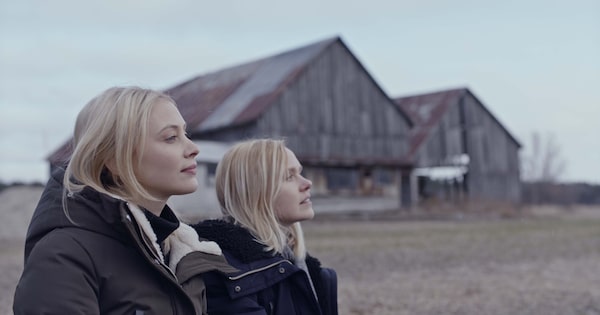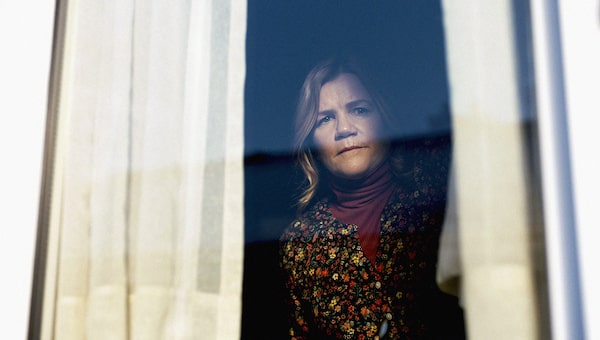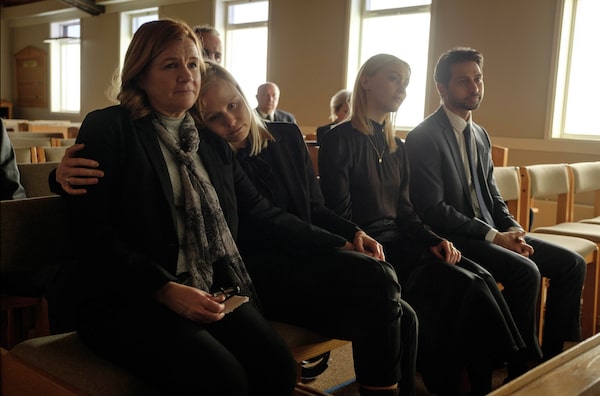
Sarah Gadon and Alison Pill in a scene from All My Puny Sorrows.Courtesy of AMPS Productions Inc. / Mongrel Media
Plan your screen time with the weekly What to Watch newsletter. Sign up today.
All My Puny Sorrows
Written and directed by Michael McGowan, based on the novel by Miriam Toews
Starring Alison Pill, Sarah Gadon and Mare Winningham
Classification 14A; 103 minutes
Opens April 15 in Toronto, Vancouver, Montreal and Winnipeg, expanding to other cities April 22
Critic’s Pick
I love this movie like a person. It pierced my heart the way certain paintings or pieces of music do. The way standing at the foot of a mountain does. The first time I saw it, I had to stay in my cinema seat for five minutes after it ended, to finish crying. The second time, I vowed to watch it more analytically, but ended up crying all over again.
The story, briefly: Lottie (Mare Winningham) and her daughters Elfrieda (Sarah Gadon), known as Elf, a world-renowned concert pianist, and Yoli (Alison Pill), a recently divorced mother and burgeoning novelist, are living with the after-effects of the suicide of their husband and father 12 years ago. Now, as Elf’s own depression closes in, Yoli has to fight to give her reasons to live.

Mare Winningham in a scene from All My Puny Sorrows.Courtesy of AMPS Productions Inc. / Mongrel Media
That sounds bleak, but mysteriously, it’s the opposite. What the screenwriter and director Michael McGowan pulls off here is a miracle of tone – the same tone that Miriam Toews established in her source novel, whose title comes from a Coleridge poem: “I too a Sister had…To her I pour’d forth all my puny sorrows.” It’s that juxtaposition of puny and sorrow, that heightened awareness of the bitter-sweetness of being human, that slays me. Our individual sorrows, when we are suffering them, are everything. But in the collective scheme of things, they are nothing. We go on. Life is funny because it is so sad, beautiful because it is ephemeral. Getting that tone right is how a story about grief turns into one of the most life-affirming things you’ll ever see.
It’s hard enough to do that in a novel. On film it only works if everyone is making exactly the same movie – and I mean everyone, from the production designer who knows what someone’s bookshelves should look like to the sound engineer who finds just the right (menacing, innocent) chug of a train.
And of course, the actors. Here’s another miracle that McGowan and his casting director, Heidi Levitt, manifested: Yoli, Elf and Lottie each need something, and Pill, Gadon and Winningham each has precisely that thing to give. Winningham’s Lottie radiates an acceptance of grief that is stoic but warm; she’s plain-spoken to the point of being blunt but her emotional bravery is boundless; and she just loves people, she can’t help it. Gadon’s Elf has to be as otherworldly as her name suggests – fully believable as a part of this family, but also apart from it, as if Lottie somehow gave birth to a mermaid. In other roles, Gadon’s preternatural beauty and intelligence can make her seem too separate; here they work exquisitely, the furrow in her brow like a thumbprint of pain.

Screenwriter and director Michael McGowan turns a story about grief into one of the most life-affirming things you’ll ever see.Courtesy of AMPS Productions Inc. / Mongrel Media
As for Pill – she’s sensational, one of those rare actors whose skin is near-transparent. You can practically feel the snow on her cheek. Watch her eyes darken when Yoli realizes what Elf means by, “They have clinics in Switzerland.” Watch her face in one perfect funny moment, when some dude from her past equates writing with cleaning septic tanks – in the first nanosecond she’s amused, grossed out and slightly offended; in the next, she’s thinking it over, and she agrees.
McGowan wisely sets the spine of his film – a series of conversations between Yoli and Elf, where their jokey, sisterly manner belies how desperately urgent both their pleas are – and then builds it out, layering in just the information we need at the moment we need it. A few of the flashbacks of the sisters as young girls feel inordinately sweet, but that’s a small flaw compared to how thoughtful this film is about life after grief; how many lines and moments are instant classics; and what a feat it is that the characters and relationships are so fully realized that a reference to Aleksandr Solzhenitsyn is amusing, wise and heartrending all at once.
Yoli marvels at the kind of people “who have a great capacity for things,” but we see that she’s one of them. The mess of life is its point. Hope is excruciating, and also necessary. As Yoli says, quoting Elf, who’s quoting D.H. Lawrence, “We’ve got to live, no matter how many skies have fallen.”
Special to The Globe and Mail
Plan your screen time with the weekly What to Watch newsletter, with film, TV and streaming reviews and more. Sign up today.